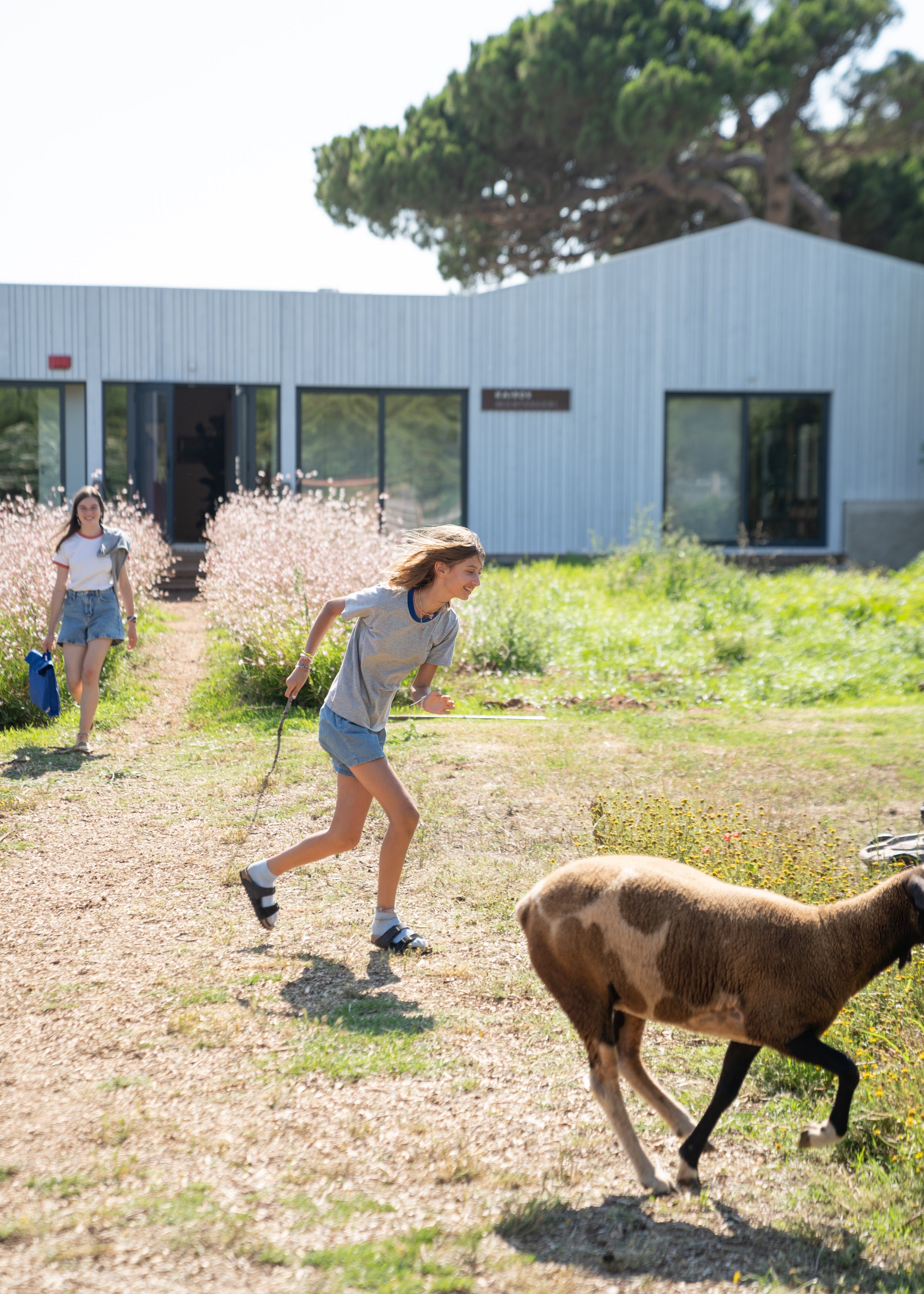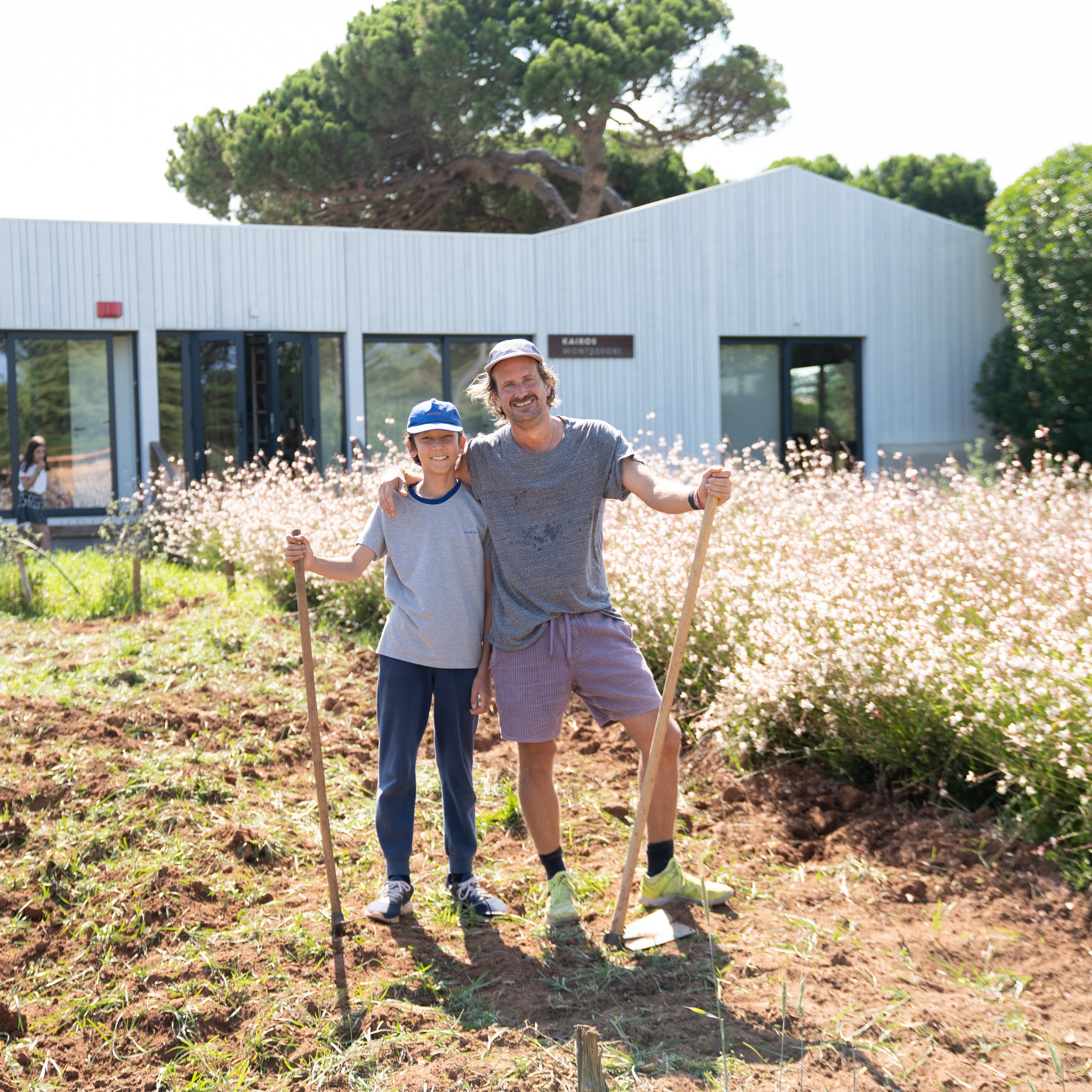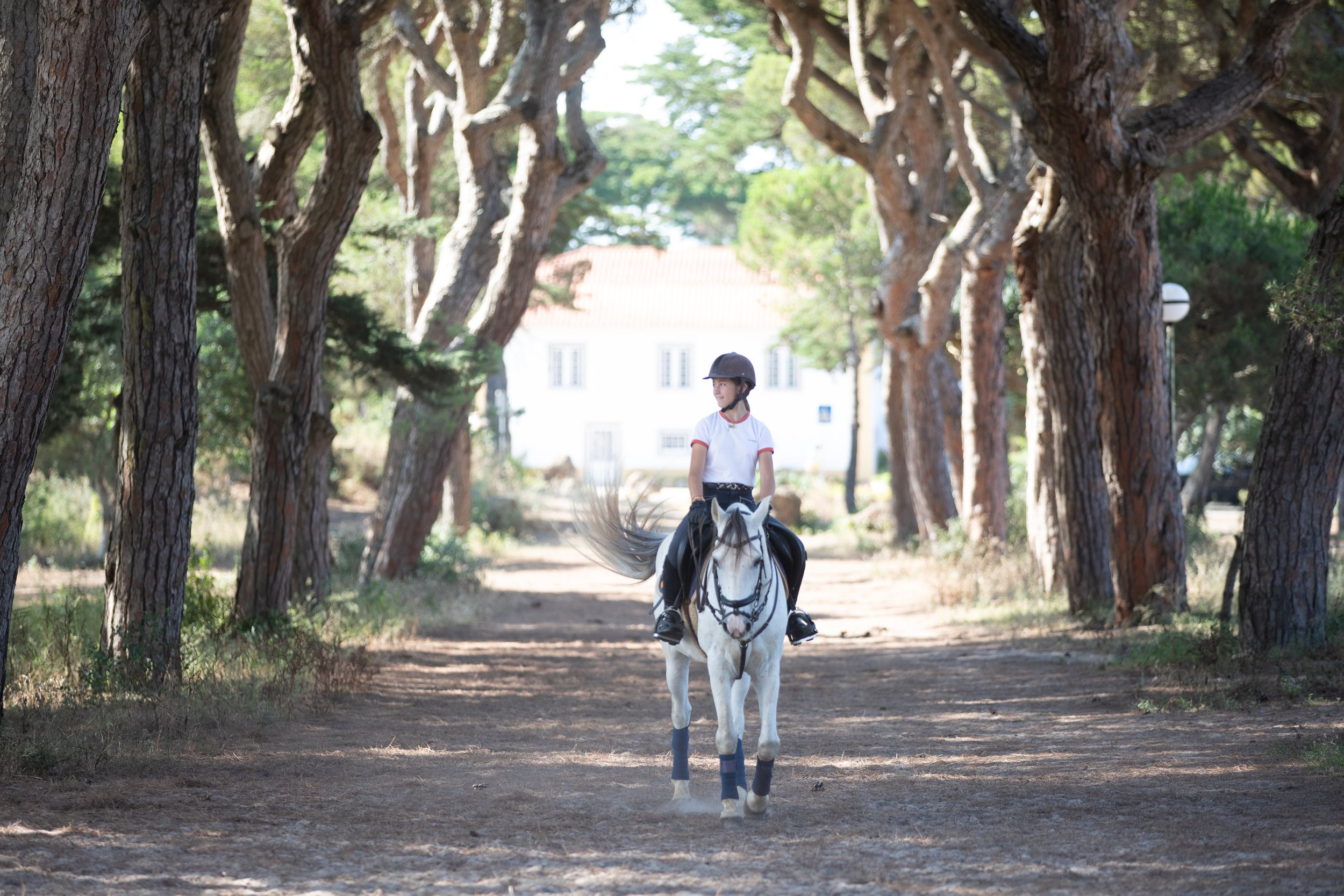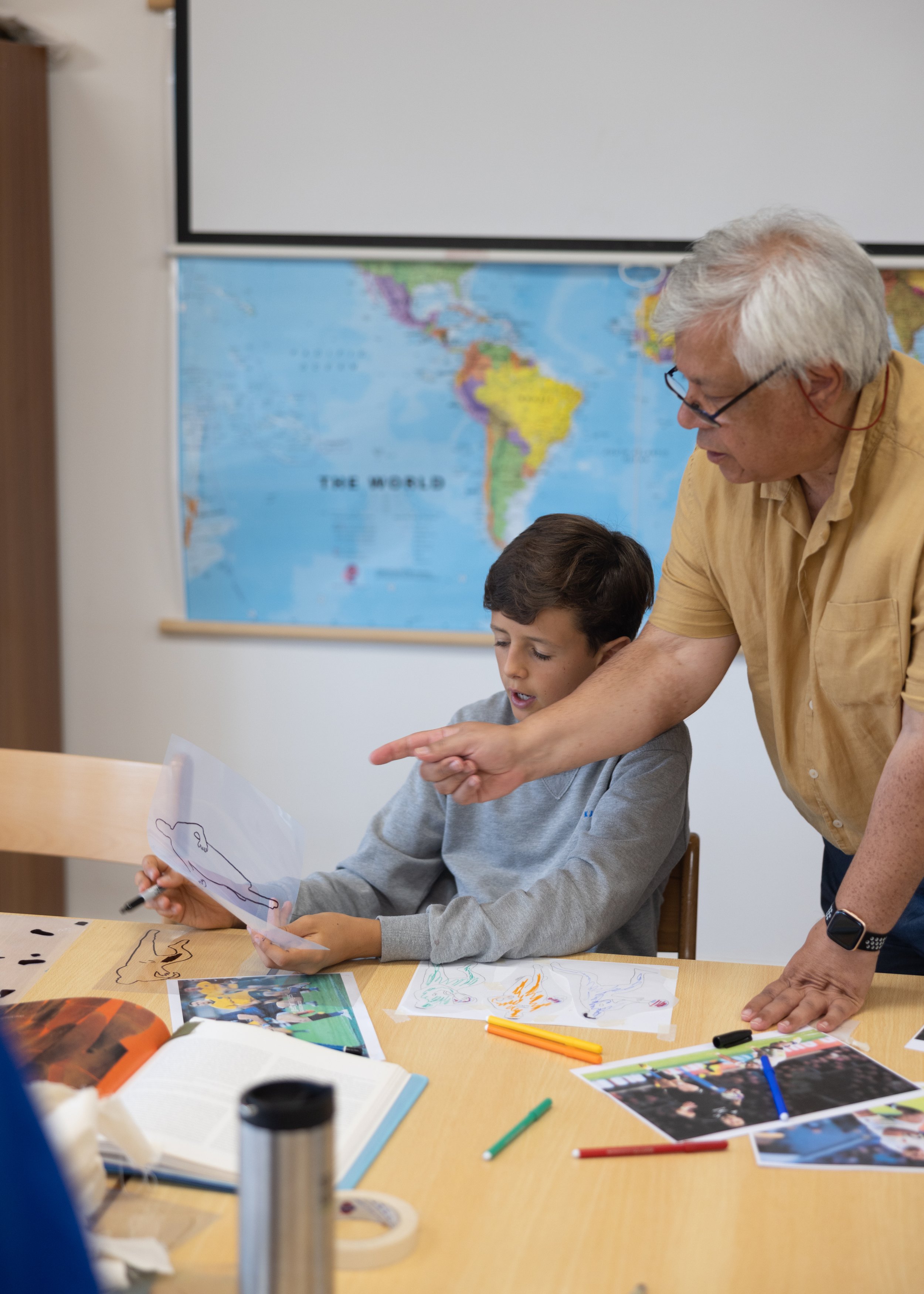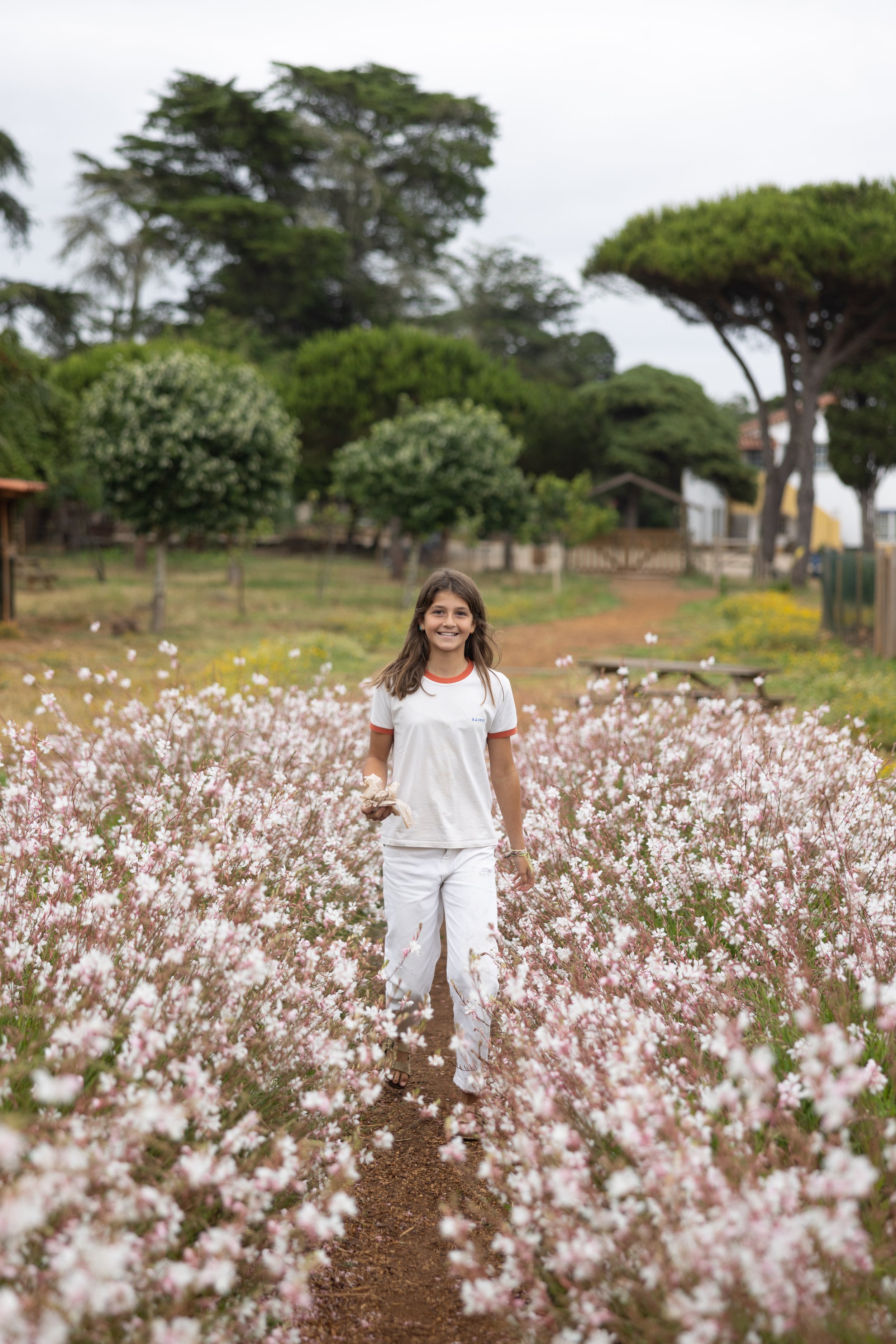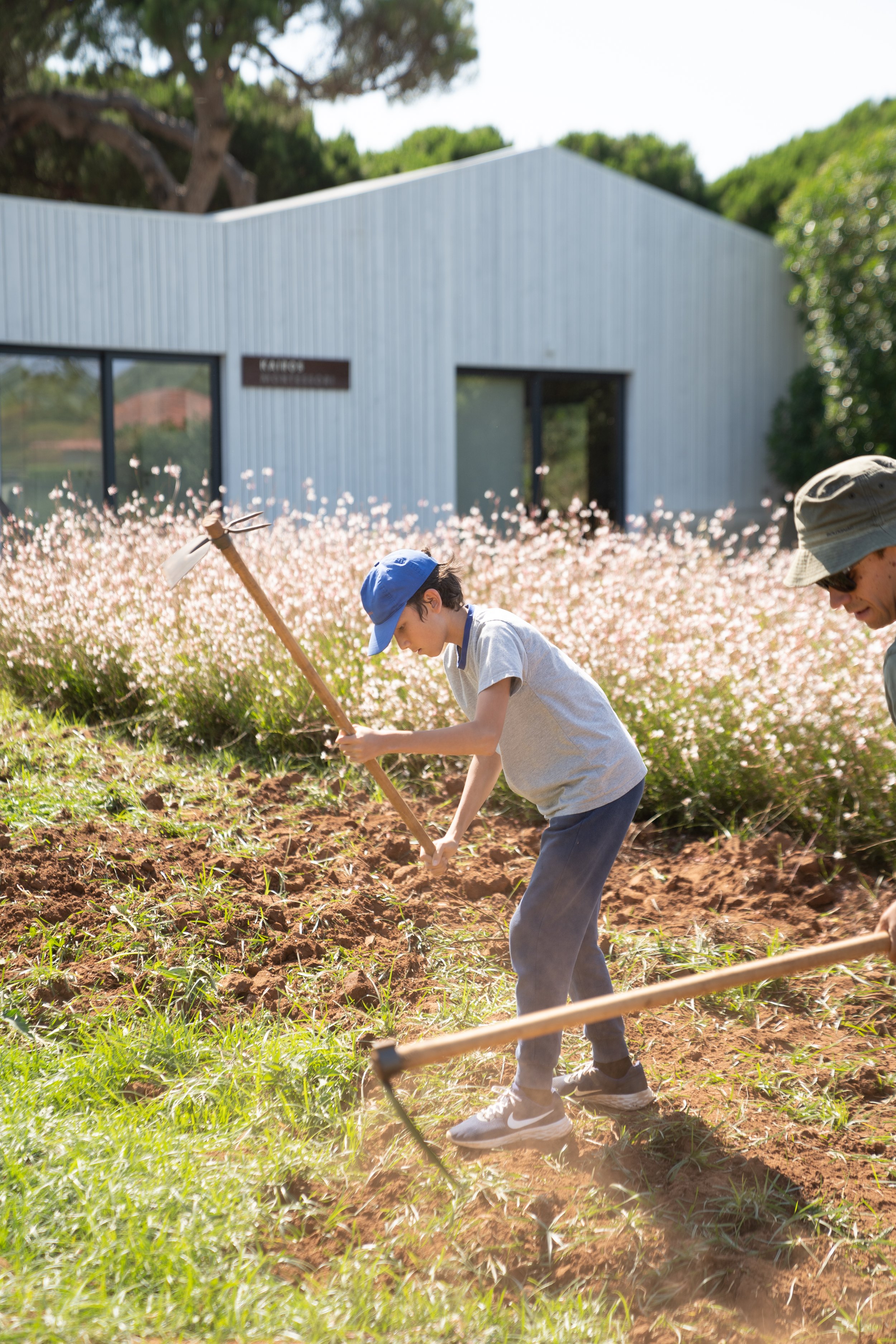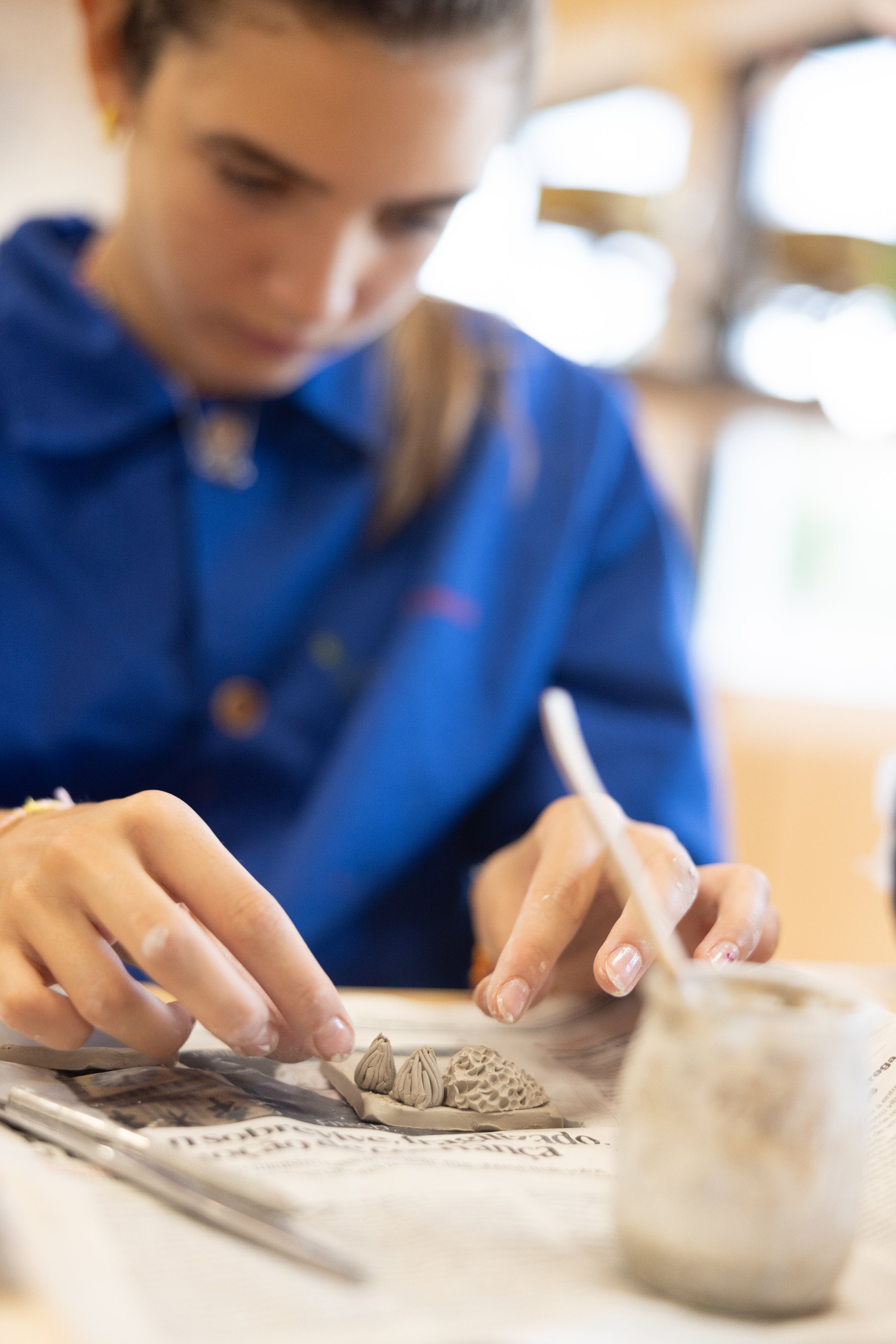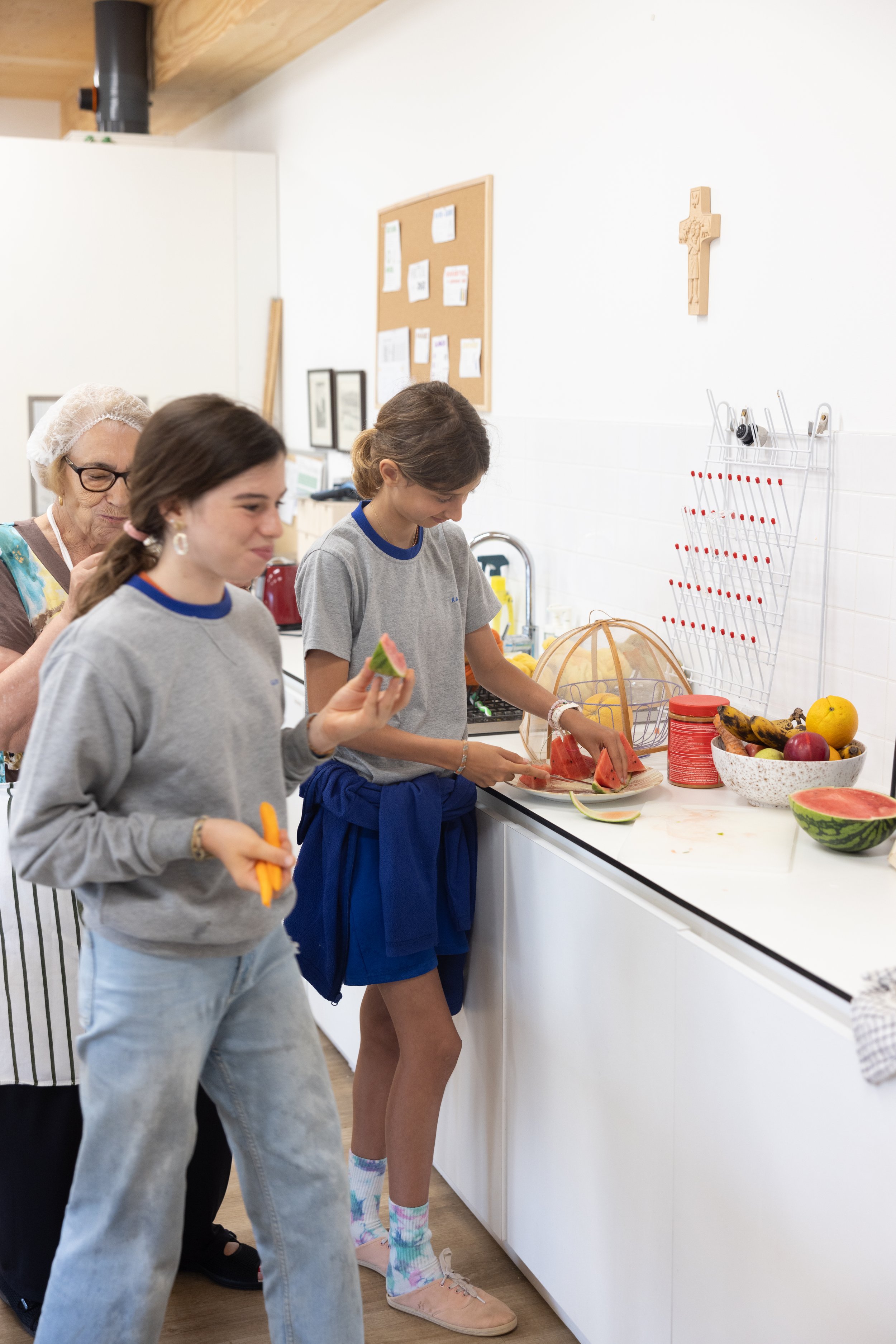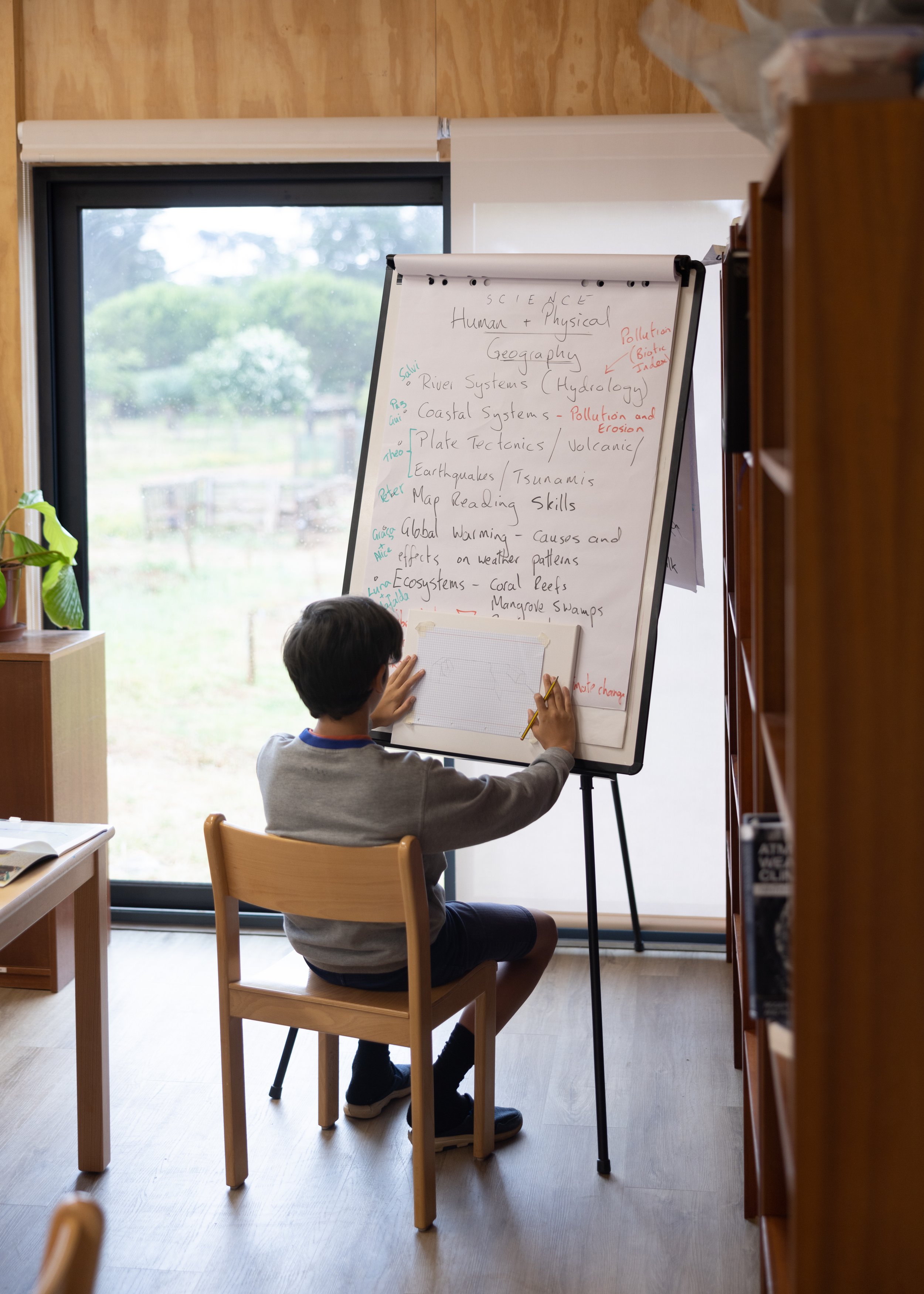
Secondary - our Adolescent Programmes
Kairos’s Secondary Programme is for ages 12 to 18 (Year 7 to Year 13), and is based on the recognition of the special characteristics of adolescence—a time of great social development, critical thinking and re-evaluation, and a period of self-assessment. During this critical juncture, Kairos students work on understanding the world through a problem-solving lens while exploring the big ideas that have united humans across time: truth, beauty, freedom and justice.
Secondary at Kairos has its foundation in a rigorous classical education that strives to renew the minds of our students in the truth, goodness and beauty of tradition. Daily life at Kairos is a careful balance of work, prayer and play, which provides a dynamic structure for students to grow. Students are given the chance to participate in a wide range of wholesome activities such as athletics, symposiums, dramatic performances, local community service, and both cultural and liturgical celebrations. These activities are not thought of as “extra-curricular” but absolutely a part of the student formation. They provide a balance between the rigours of academic study and physical work.
“Education is not the acquisition of marketable skills, or self-improvement, culture, personal fulfillment or even knowledge—though these benefits normally occur; but, essentially, it is a call to something higher than ourselves…” — John Senior.
Secondary students run the Kairos farm, they are engaged in philosophy, theology and current event discussions. They have local residentials (such as the annual start of year farm residential, which in previous years has been in the Douro and the Alentejo for wine and almond harvests) and international residentials (such as in Krakow and Rome). Students are also engaged in the International Model United Nations, Duke of Edinburgh Award, and have the opportunity to assist Guides in more junior parts of the School.
Kairos tracks individual student progress in alignment with UK National Curriculum and the Cambridge International Curriculum.
Lower and Upper Adolescent Programmes (Secondary or High School)
In keeping with the Montessori system, Kairos runs its Adolescent Programmes in three year cycles. There are two three year programmes: The Lower Adolescent Programme (LAP) and the Upper Adolescent Programme (UAP). Please see equivalences here.
Lower Adolescent Programme (LAP)
The school follows the UK National Curriculum for Years 8, 9 and 10, with the following subjects offered to all students:
Art & Design
Combined Science
English Language
English Literature
Geography
History
Mathematics
Music
Physical Education
Portuguese (first or foreign language)
Catechesis of the Good Shepherd (CGS)
Upper Adolescent Programme (UAP)
Students who successfully complete their LAP studies may continue into the Upper Adolescent Programme (UAP). Kairos Montessori School understands that parents and students will be wanting to acquire the academic awards and credentials needed for entry into Higher and Further Education. For this reason, we offer A Levels in the following subjects:
Art & Design
Biology
Economics
English Language
English Literature
Mathematics
Further Mathematics
Global Perspectives and Research
Portuguese
Psychology
We are an examination centre for the Cambridge International Education (CIE) Examinations and all our Advanced Level subjects are taken with Cambridge under the AICE Diploma.
Full details of our Upper Adolescent Programme can be found in the UAP Prospectus here.
In order to ensure that our students transition into the Cambridge AICE Diploma programme at the correct age, we run a Foundation year in UAP1. In this year, we help students transition from LAP studies to advanced studies.
We do not offer IGCSEs in all subjects at the end of UAP1 (Year 11) but students do take IGCSEs in English First Language and Mathematics, whilst they begin studies in their A Level option subjects. This is to ensure that students have the minimum of English and Mathematics IGCSEs needed for UK university matriculation.
In addition to academic studies in UAP, students maintain active participation in school life. This helps students develop a sense of belonging and knowing that they make a difference. Students work on community projects that involve responsibility and decision-making, and daily care of the school and farm, providing an opportunity to unite the student body in achieving common goals.

